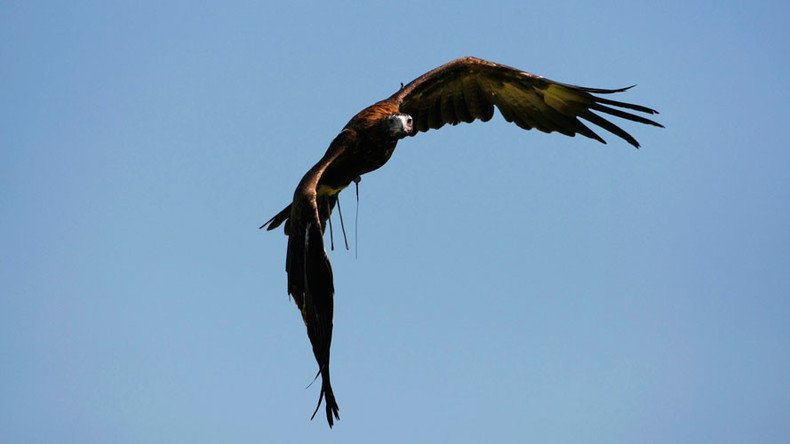Eagles v Drones: Birds prey on gold mining company’s UAVs

Australian wedge-tailed eagles are repeatedly attacking surveying drones belonging to one of the world’s biggest gold mining companies, causing more than AU$100,000 (US$75,000) in damage.
Gold Fields Ltd has been using unmanned aerial vehicles (UAVs), as a surveying tool on a mine near Kambalda in Western Australia.
The drones are worth AU$10,000 apiece and the cameras attached to them cost another AU$10,000. At a mining conference this week they were described as “the biggest step forward for surveying since global positioning systems (GPS),” ABC reports.
However, the expensive aircraft have repeatedly fallen victim to a bigger, more powerful commander of the skies.
Wedge-tailed eagles are the biggest bird of prey in Australia and one of the largest in the world. They have razor sharp talons and a wingspan of around 2 meters (6ft 7In), making the drones, with a wingspan of just 1 meter, light work for these fearsome birds.
Rick Steven, who operates the drones at the mine, told ABC that they are “the natural enemy of the UAV… the females are bigger and nastier.”
The mining team has attempted to camouflage their drones as other eagles as well as painting them in a rainbow-colored pattern – however neither approach has yet proven effective and eagles have so far destroyed nine drones.
This is far from the first time drones and eagles have come into conflict. Footage of an eagle taking out a drone in Australia went viral last year.
Eagle takes down drone in Australia. pic.twitter.com/JXqTTDxvut
— Fascinating Videos (@FascinatingVids) May 14, 2016
Meanwhile, Dutch authorities are hoping to use the predator’s natural skills to their advantage and police have been training a team of eagles to tackle rogue drones.
They have been carrying out tests for nearly two years and recently announced that the results have been positive.
Under the project, eagles will be used whenever drones are believed to be posing a danger to the public, such as during sensitive state visits or by flying too close to airports.












